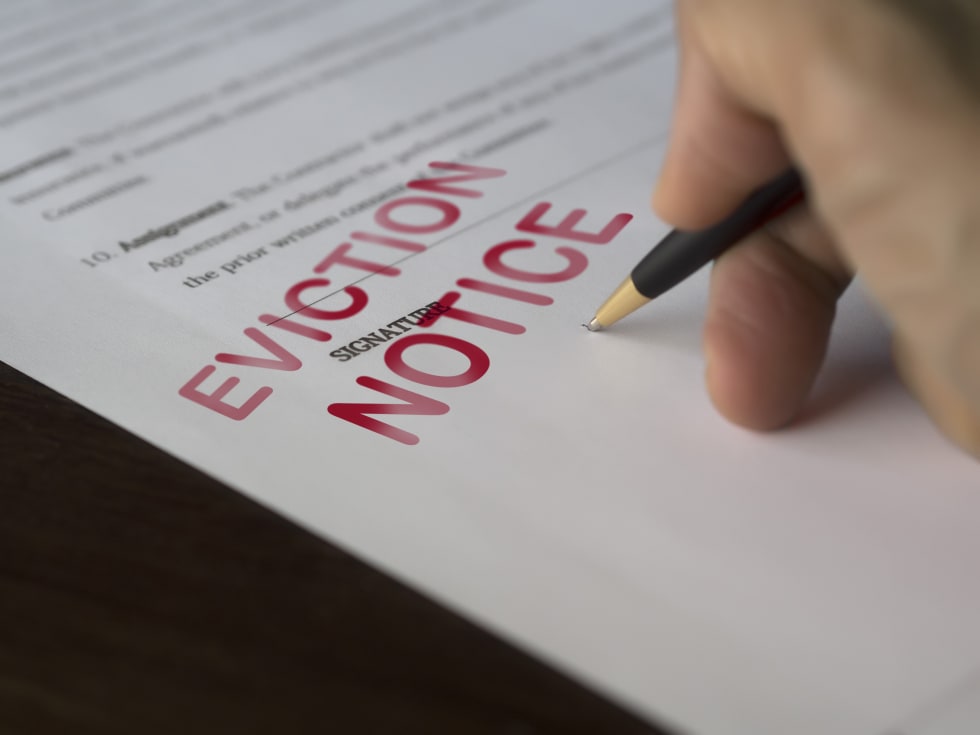Holdover Tenant: A Definition + Landlord Guide for 2023

The term “holdover tenant” is one that can be foreign to many landlords, especially those just starting out in their property management journey. However, it’s important for all rental property owners to understand holdover tenancy and how educating yourself on the surrounding laws and processes can mean the difference between successfully managing a rental or falling victim to costly vacancies.
In this guide, we will provide an overview of holdover tenants, cover relevant legal aspects, and arm you with the most helpful best practices on how to carefully and lawfully navigate these sometimes challenging circumstances. Let's dive in!
What is a Holdover Tenant?

A holdover tenant remains on your property despite the lease's expiration. As long as you continue to accept rent payments, or holdover rent, from your tenant, they are legally allowed to occupy your property. State laws and court rulings will determine the holdover tenant’s new rental term.
A holdover eviction may come into play once the tenant becomes a trespasser when you no longer accept rent payments beyond the expiration of the original lease.
Is Holdover Tenancy Legal?
Holdover tenancy is technically legal as long as the landlord continues to accept rental payments while the tenant is holding over. But, there are different legalities surrounding rent holdover, which varies from state to state.
Does a Holdover Tenant Have Rights?
In the situation of a lease holdover, the tenant does have rights. However, because it is illegal for a landlord to accept rent without a lease, it can be difficult for a landlord to stand up in court.
To protect themselves, landlords should create a holdover provision in their lease agreement. They may be able to charge a holdover rate at a higher rate than the monthly rent included in the original lease.
How to Deal with a Holdover Tenant

If a tenant has a month-to-month lease and the landlord accepts them beyond their lease agreement, they can continue to make rent payments. However, a landlord must not take any more rent payments if they want a holdover tenant to leave. The tenant becomes a trespasser at this point, which is how they can begin to remove them from their property.
Non-Payment Proceedings
The landlord can seek to evict the tenant based on the tenant’s failure to pay rent in a non-payment proceeding. If you’re interested in pursuing this route, you should know these bits of information first:
- You can only go after rent payments (back rent or additional rent), with no money for covering any damages or repairs for the property.
- You cannot collect any rent that goes back further than the last six months.
- You must notify the tenant by certified mail at least five days after the rent is due that you have not received the rent within five days of its due date.
- You must then arrange to have a 14-day notice served on the tenant, including an order to move out and demand for payment of all back rent in full.
- You can only file a non-payment proceeding if the 14-day warning expires without the tenant moving out and all rent due is paid.
Holdover Proceedings
To evict a tenant on any grounds other than non-payment, a landlord can seek out a holdover proceeding. If you’re considering a holdover proceeding, know this:
- You can initiate a holdover proceeding when a tenant violates a term of lease or rent laws or if they stay past the expiration of a lease without your consent.
- You must provide a tenant with a notice of cure, which is a written notice that their actions violate the lease, and give the tenant time (usually ten days).
Final Thoughts
Holdover tenancy can be a tricky situation to manage, but the key is to stay informed and understand your rights as a landlord. As you've learned, with the right holdover provision in your lease agreement and a clear understanding of how to proceed, you can successfully handle holdover tenants, protect yourself legally, and even make more money from lease agreements.
Share this Article




